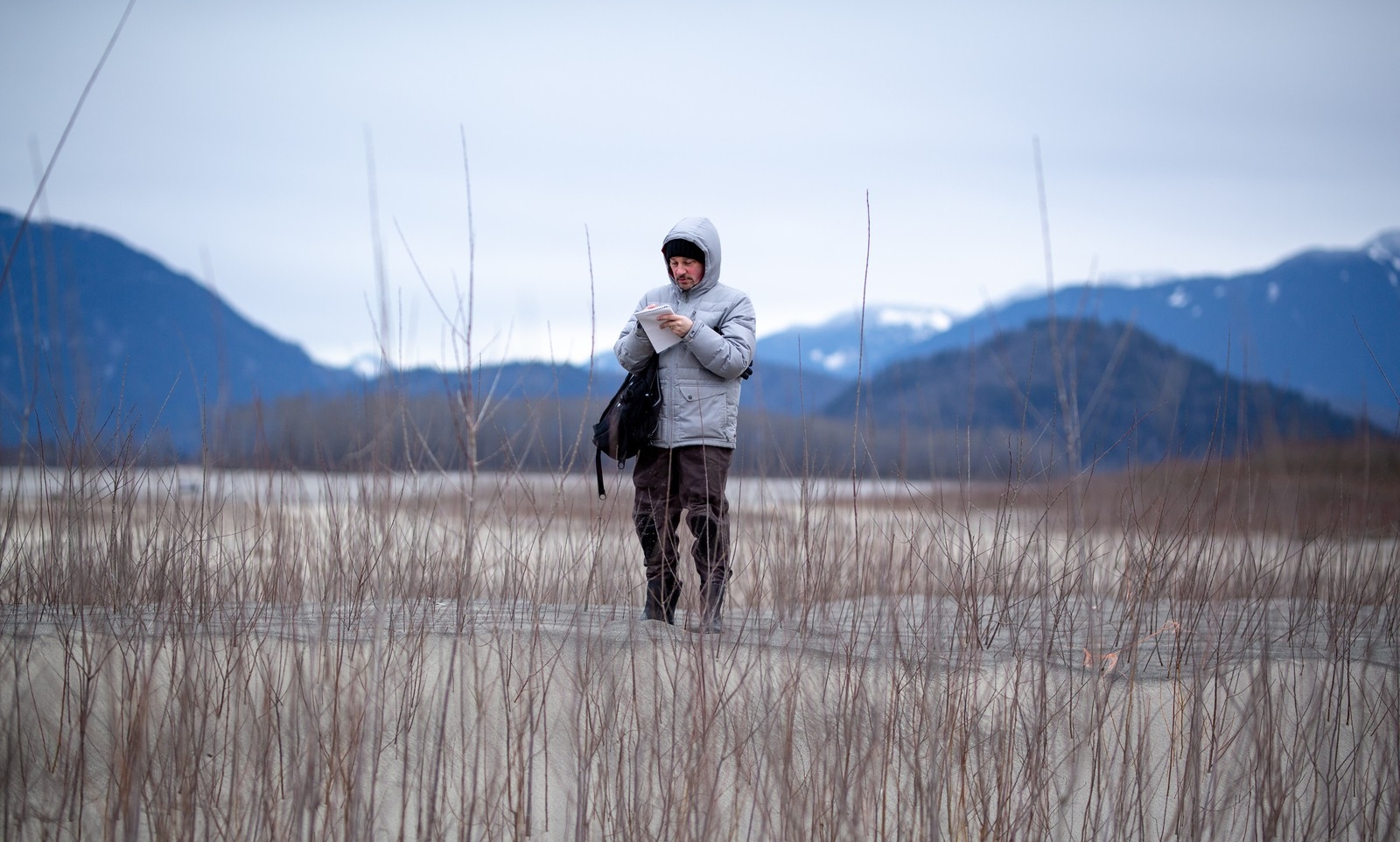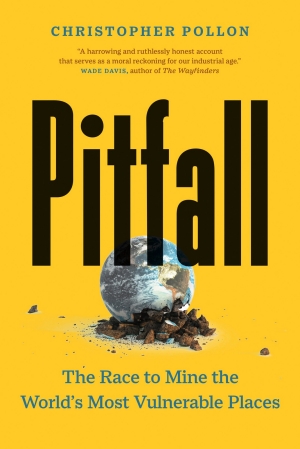That Pollon has produced a book on the darker side of mining shouldn’t come as a surprise to those who have followed the full-time freelance journalist’s articles and books on environmental justice and climate change.
His first book, the 2017 investigation The Peace in Peril: The Real Cost of the Site C Dam (Harbour Publishing), reported on a staggering British Columbia-based project that would see a 60-metre-high dam stretch more than a kilometre across the main stem of the Peace River, creating a massive artificial lake and flooding the best topsoil left in the province’s north.
Coupled with stunning photos shot by Ben Nelms, Pollon explored the Peace Valley’s 11,000-year-history of Indigenous and farming communities, and how the dam threatens the future of both humans and animals in the region.
“This book was an opportunity to offer a last snapshot of the hundreds of kilometres of wild river and land that was on the cusp of being destroyed, and to create a final record of that place for posterity,” Pollon says.
Beyond his books, Pollon’s reports have been published in The Globe & Mail, Canadian Geographic, The Walrus, The Tyee and Hakai Magazine. He’s written on the threats to salmon populations, the surge of solar farms and accountability for devastating oil spills.
Learning by doing
Pollon’s talent for writing first emerged through his fiction and poetry when he was in high school in Scarborough, Ont. In his final year, he decided to apply to Toronto Metropolitan University’s journalism program, was accepted but decided it wasn’t the right time to delve into the field just yet. Instead, he enrolled at McMaster University, earning a history honours BA.
It was then that he decided to give journalism a try, attending Concordia’s Graduate Diploma in Journalism program, a decision he would later come to treasure.


 Christopher Pollon has written about the threats to salmon populations, the surge of solar farms and accountability for devastating oil spills.
Christopher Pollon has written about the threats to salmon populations, the surge of solar farms and accountability for devastating oil spills.
 Christopher Pollon, GrDip 92
Christopher Pollon, GrDip 92
 Pollon's latest book, Pitfall explores how transnational companies exploit the environment and communities across the global south.
Pollon's latest book, Pitfall explores how transnational companies exploit the environment and communities across the global south.